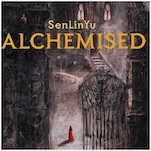If We Have to Die, Then We Have to Die
Photo by Patrick Smith/Getty
There—how’s that for a melodramatic title?
The death I refer to is the one that will come if our most paranoid, Kendzior-like fantasies are made manifest under a Trump administration; if the price of speaking out against a a totalitarian regime is martyrdom; if active nonviolent resistance is so feckless against an overpowering and vicious state that the only guaranteed end is your eternal silence.
Believe me, I have indulged in some catastrophic thinking since Nov. 9. And yet, I find this outcome highly unlikely.
Nevertheless, I repeat: If we have to die, then we have to die.
What’s the point of this mantra? Well, I’ve recently come to recognize in myself a trait that’s shared, I think, by an overwhelming number of liberals, Democrats, leftists, etc. What we want, deep in our hearts, is an easy fix. It’s a yearning that shows itself in our desire to have Trump’s impending presidency invalidated in some way—by Russia, by business entanglements, by hook or by crook. Republicans call it whining, but I think it’s a symptom of deep belief. We want a deus-ex-machina, and the God we imagine is called America. A moment of great instability, such as we’re about to face, feels like more than injustice, or bad luck, or just deserts. It feels like an impossibility—surely, we’ll be spared by a last-minute intervention.
We’ll grasp for any hope, and that reaction makes total sense. For many of us, and I include myself, political struggle has not been a major part of our lives. It’s not that we’re weak or cowardly—we’ve had other struggles, and they’re not minor—but we are politically complacent. And why wouldn’t we be? Presidents change, years pass, and through it all we’ve always counted on a baseline security. We were born with it. (Please notice that I haven’t used the word millennial here—I’m speaking of all generations.) We’ve never known anything different, so it would be ludicrous to expect us to be emotionally prepared for catastrophe.
Just like it would be ludicrous to expect us accept the changes with anything like resolve. Please! What’s happening in America is terrifying and destabilizing. We’re like children who have been stripped of their parents and their home, and asking us to keep a stiff upper lip is asking us to stop being human. Denial and bargaining are part of this process, and we want—desperately—for what we’re witnessing not to be true. We’re enduring a kind of psychological trauma, a grim diagnosis, and it’s only natural to shut our eyes and wish it away.
But it’s not going away. This much is obvious on a surface level to almost all of us, but it’s been harder to internalize. We are the people that history snared in the middle of life. We grew up one way, and now we’re being asked to make a fundamental shift, against our will. If things go rotten, children born after today will have a better time coping with the new reality, because it’s all they’ve known—just as someone born with a disability will be better reconciled to his condition than someone who becomes disabled in adulthood.
The major question facing us now is, how do we adjust? How do people who have never never felt anything but semi-solid political bedrock under their feet manage a sudden earthquake?
We manage by repeating to ourselves: If we have to die, then we have to die.
Here’s what I mean: Resistance is not glorious. The core ingredient of resistance is not bravery or freedom from fear, but a resignation to the worst possible fate. It’s a necessary process for anyone to endure, and every day we spend begging for a miracle is a day we hurl into the void. There are no miracles—we won’t be saved in a sudden swoop of good fortune. We won’t wake up tomorrow, or the next day, or any time in the next months and years, to see that all we cherished and took for granted has been restored.
“If we have to die, then we have to die” is not a mantra of futility. It does not mean death is inevitable, or even likely. (As I said before, I find it improbable.) What it means is that we are committing to a choice—we are committing to nonviolent resistance—and we accept whatever happens as a result. That’s the key part: Whatever happens. If Democrats storm to a congressional victory in two years, impeach Trump, and usher in a new progressive society, we accept that. If we suffer through eight years of Trump, but the damage is typical of a Republican presidency, and the pendulum swings back in 2024, we accept that. If Trump becomes an authoritarian, and a master propagandist, and our only misery is that our voices are lost in the new American ignorance, we accept that. If we are targeted, humiliated, imprisoned, or killed…yes, we accept that too.
Paradoxically, you will find comfort in this mindset, because it is your only recourse to certainty. You can’t control what happens to America, and you can’t control what happens to you as a result of your actions. But you can control your actions. By accepting death and everything less than death, you are focusing your energies into a part of life where you are autonomous. As for everything else? You leave that to fate, or chance, or God—however you define it in your mind.
There’s a particularly nasty form of OCD called “pure OCD,” in which the sufferer fixates on an intrusive thought to his or her mental and emotional detriment. Very often, the thought will not be tethered in any way to logic. A common example: A new and adoring father will start ruminating on the idea that he is capable of killing his child. He will say to himself, “this is something I would never do,” but another part of his brain will respond, “yes, but what if you do?” The father, who would never in a million years harm his child, will suddenly become nervous when he’s in the same room with the baby and he sees a knife. He will feel deep anxiety, and begin avoiding the child because he considers himself a danger—why else would he be having such an awful thought?—and reasons that there would be nothing worse in the world for than to see the baby come to harm.
What’s happening on a chemical level is that the man’s illness is triggering a fear reaction in the lizard part of the brain. The connections aren’t working properly, so when he has the distressing thought that he might harm his own child, the fear reaction spikes just as it would if he saw a snake at his feet, and sends a shot of adrenaline as a warning. And because it spikes, the rational brain—also trying to be helpful—starts to believe this thought may be legitimate, to which the lizard brain responds with further fear spikes, and on and on until the man is an emotional wreck.
A well-meaning person, seeing this reaction play out, will reassure the man that no, of course he won’t hurt his child—he’s a nice person, and he loves the kid. And the man will feel temporary comfort, but soon he’ll think his “what-ifs,” and he’ll be back in hell. There is no reasoning with OCD. A therapist who knows what she’s doing, on the other hand, will understand that in order to help the man, she needs to short-circuit the chemical process. The lizard part of the brain needs to understand that no, this is not a legitimate fear, and thank you very much, but the rush of adrenaline is not necessary.
She will tell the man to hold his child in one arm, and the sharpest knife he can find in another. She will tell him to make jokes (to himself) about hurting his child. She will tell him to write the words “I am going to kill my own child” on an index card, and to look at it ten times every day. And he will feel tremendous anxiety—at first. And he will struggle. And then he will notice that, by confronting himself with the thing he had tried to avoid, or to argue against, the thought begins to lose its power. The lizard brain starts to understand that if the thought were so worthy of adrenaline, it wouldn’t come so often, or on purpose. The man will begin to welcome the challenge of the fear spikes, and soon they’ll stop coming at all.
Our political situation is more subtle than the man with his child, but it operates on the same principle. We want someone smarter and more powerful to tell us that the bad thing we obsess over won’t happen. We want certainty, and we want reassurance, and we are in a vicious cycle of seeking them out—nourishing ourselves with morsels that provide a brief respite, and then facing the enormity of the darkness anew when those nourishments prove hollow.
Accept this: There is no certainty. There is no reassurance. Anyone who tells you that the bad thing won’t happen is lying, because nobody can guarantee that. We are making a huge mistake if we seek solid answers about the future. There are none. There is no avoidance, either—this isn’t a political reality you can hide from. The sooner we reckon truthfully with what horrifies us, the sooner we can learn to live with it—and the sooner we can overcome it.
All you can do today is commit to your own form of resistance, and understand that you are making a principled choice in a difficult time. This is the single arena in which you have power. When Trump won, I wondered if I should indulge my fears and stop writing about politics, and slip under the radar of whatever came next. But of course not! There’s no happiness in obliging your fear—you only become a prisoner to your own cowardice. We were born to die, and my life is only worth so much; certainly not more than my understanding of what it means to be good.
I’m seizing instead on the choice of resilience and resistance, and committing to a mindset of acceptance for whatever comes to pass. I have had my belief in America rocked to its core, and I don’t know what history holds for us. But my belief doesn’t matter, because my vision has been reduced to simple terms. The only question I have to ask is how I should behave, day to day, regardless of the outcome.
I’ve made my choice, and I resign myself to everything else. I hope you do too—good things come from solidarity. And, yes: If we have to die, then we have to die.







































